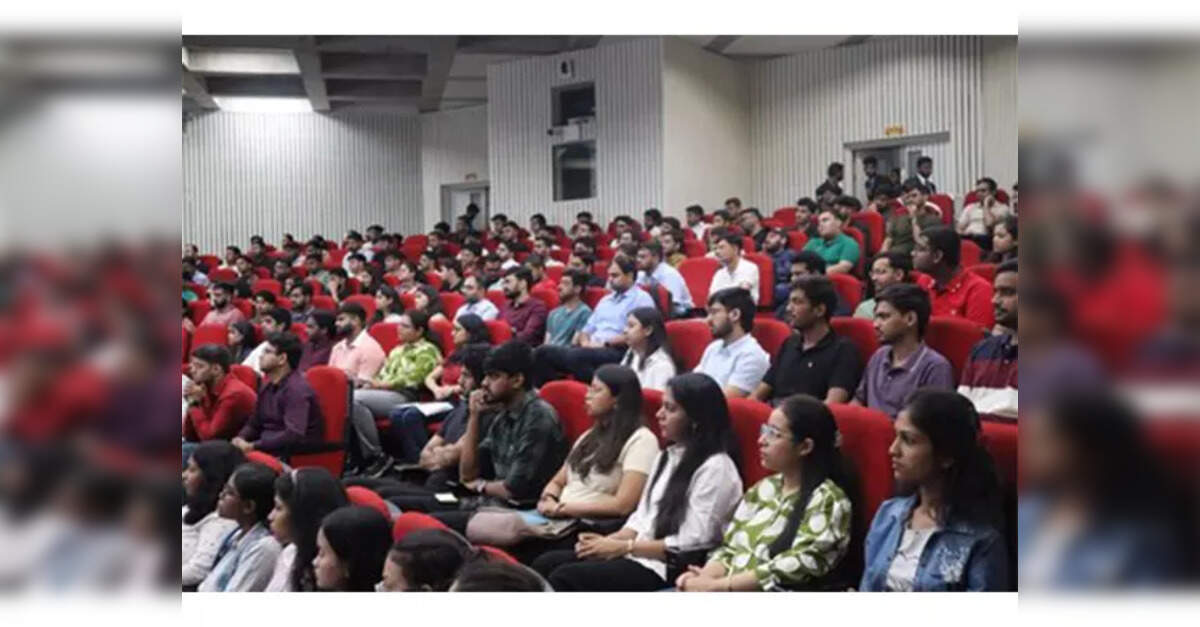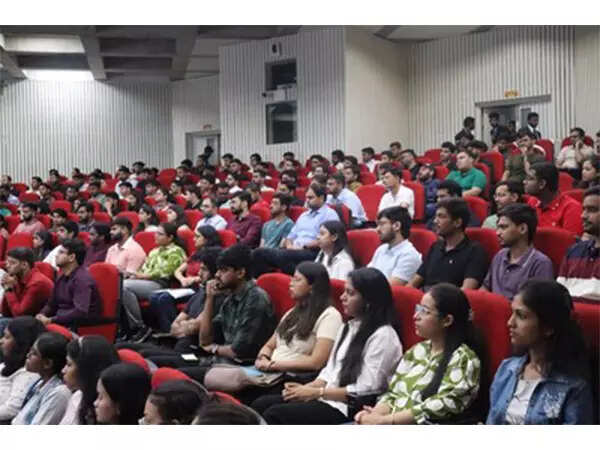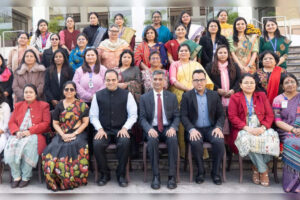
More non-engineering students breach B-school wall, Education News, ET Education

India’s leading business schools, once primarily the domain of engineering graduates, are on a drive to diversify their classrooms with an enhanced focus on non-engineers. This shift stems from the growing belief that not only the institutes, but also a rapidly changing corporate world requires varied perspectives and problem-solving abilities.
In a first, non-engineers at 50.12%, outnumbered engineers for the 2025-27 batch at the Indian Institute of Management Ahmedabad. At IIM Kozhikode, 53% of the latest batch is non-engineers, while at IIM Lucknow, it is at 49.3%. Both SP Jain Institute of Management and Research (SPJIMR) in Mumbai, and Management Development Institute (MDI) Gurgaon have 42% non-engineers in the new batch.
In comparison, till about a decade ago, non-engineers comprised only 10-15% of the class at IIMs.
While efforts to balance the skew have been ongoing for a while now, through initiatives such as awarding extra ‘diversity points’, giving less weightage to the Common Admission Test (CAT) score, and focusing more on personal interviews, the momentum gathered pace in the last two-three years.
At IIM Ahmedabad, for instance, in the last three years, the share of non-engineers has risen from 33.5% to the current 50.12% levels.
Himanshu Rai, director at IIM Indore, attributes this to the growing recognition among both academic institutions and recruiters that successful managers can emerge from a wide array of academic backgrounds. Business schools, he says, are placing greater emphasis on diverse thinking styles, strong communication abilities, and domain expertise from fields such as statistics, economics, humanities, commerce, design, and law.
Interdisciplinary Insight a Must
“Today, this shift is not only deliberate but also necessary. Modern business challenges are complex and multifaceted, demanding more than just quantitative prowess; they require interdisciplinary insight and varied perspectives,” said Rai.”The success of business education lies in academic diversity,” noted Prof Jyotsna Bhatnagar, dean-graduate programmes, MDI, Gurgaon. “This not only makes it more relevant but also way more future-proof than what even the smartest AI is yet to replicate. A healthy mix of student portfolios helps in more meaningful conversations and better problem-solving abilities.”
“The rise of non-engineering students in our B-schools is a welcome shift,” says Supratik Bhattacharyya – chief talent officer, RPG Group, which recruits from top IIMs, FMS, XLRI, SPJIMR and MDI, among others.
“Despite RPG being rooted deep in engineering and technology driven businesses, we strongly believe that diverse minds lead to better decisions, richer problem-solving, and more inclusive leadership,” said Bhattacharyya.
“We see immense value in bringing together talent from varied academic backgrounds, because real-world challenges demand as much analytical thinking as it does creative problem-solving, empathy and communication. Only a mix of perspectives can help us build more agile, innovative, and human centric organisations.”
At IIM Kozhikode, this holistic approach ensures a richer and more varied learning experience for all students, bringing diverse perspectives to classroom discussions, said admissions chairperson Ram Kumar PN. IIM Bangalore has 170 non-engineers (28%) in the flagship two-year MBA (PGP and PGPBA) – highest in the last four years, said Prof Mukta Kulkarni, dean of Academic Programmes.
Overall shift
What is also triggering the move is the rising number of non-engineers appearing for CAT, an exam traditionally perceived as tilted towards engineers because of its quant focus.
“The academic categories introduced as part of the PGP-Admissions Policy, approximately ten years ago, were aimed at bringing more diversity in students’ educational backgrounds. This change, along with a rise in applications from non-engineers, has led to a better balance,” said Prof Karthik Sriram, chairperson, admissions, IIMA.
Earlier, the common practice in India was to encourage children to pursue science, and subsequently, engineering or medical streams. That is undergoing a marked shift, with a growing share of Class 10 students opting for Arts, Commerce and Business courses, said Bhishm Chugani, director, career services and alumni relations at SPJIMR. “A larger percentage are subsequently appearing for the CAT.”
The trend is also evident at XLRI, Jamshedpur, said Rahul Kumar Shukla, convenor, XAT & Admissions, reflecting broader societal trends, including rising awareness among non- engineers about management careers, improved access to competitive test preparation, and growing recognition of the value of diverse perspectives in leadership roles.
Other schools are pivoting too. In a first, starting this year, the Shailesh J Mehta School of Management, IIT Bombay has revised its MBA admission rules, opening up to students with three-year Bachelor’s degrees, which is expected to pave the way for many more non-engineering students.
Source link



